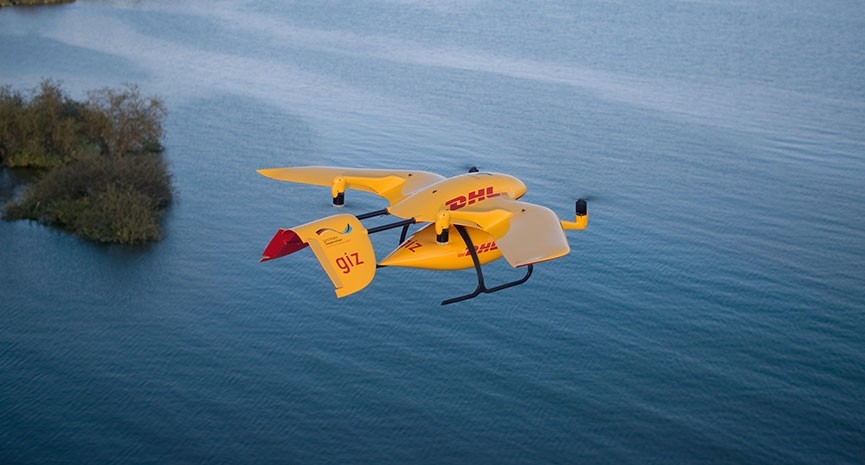DHL Parcelcopter delivers medicine through drone to East Africa
DHL, Deutsche Gesellschaft für Internationale Zusammenarbeit (GIZ) GmbH on behalf of the German Federal Ministry for Economic Cooperation and Development (BMZ) and drone manufacturer Wingcopter have successfully completed the pilot project by delivering medicines to East Africa through DHL Parcelcopter.

Oct 04, 2018: DHL, Deutsche Gesellschaft für Internationale Zusammenarbeit (GIZ) GmbH on behalf of the German Federal Ministry for Economic Cooperation and Development (BMZ) and drone manufacturer Wingcopter have successfully completed the pilot project by delivering medicines to East Africa through DHL Parcelcopter.
The DHL Parcelcopter is intended primarily for situations that mesh poorly with established infrastructures or where standard delivery methods are overly lengthy. The Parcelcopter is thus seen as a tool for improving infrastructure in hard-to-reach areas, improving the lives of the inhabitants there.
The pilot project ‘Deliver Future’ proved that it is has revolutionised the delivery of medicines to remote areas using drones. Over a six-month period, they successfully tested the delivery of medicines using a drone to an island in Lake Victoria. During the trials, the autonomous DHL Parcelcopter 4.0 completed the 60-kilometre flight from the mainland to the island in 40 minutes on average. A total of 2,200 kilometre was flown and roughly 2,000 flight minutes recorded during the pilot project.
The drone thus opens up new opportunities to address the logistic challenges in the public health sector in many parts of Africa, especially supplying hospitals and pharmacies. Medical care for the roughly 400,000 residents of the Ukerewe island district of Lake Victoria, for instance, is severely limited. This is partly due to the poor infrastructure and difficult terrain. Six hours are needed to cover the overland route of 240 kilometre. That makes it nearly impossible to provide emergency medication or to quickly refill cool chain commodities that are out of stock.
A key feature is that the DHL Parcelcopter 4.0 barely needs any infrastructure as it takes off and lands vertically. After delivering its cargo, it can easily be loaded with blood and laboratory samples to take back to the mainland. In future, the Parcelcopter could therefore not only improve logistics in the public health sector: it has the potential to help prevent crises worldwide, for example allowing an early response to slow the spread of viral diseases like Ebola.


